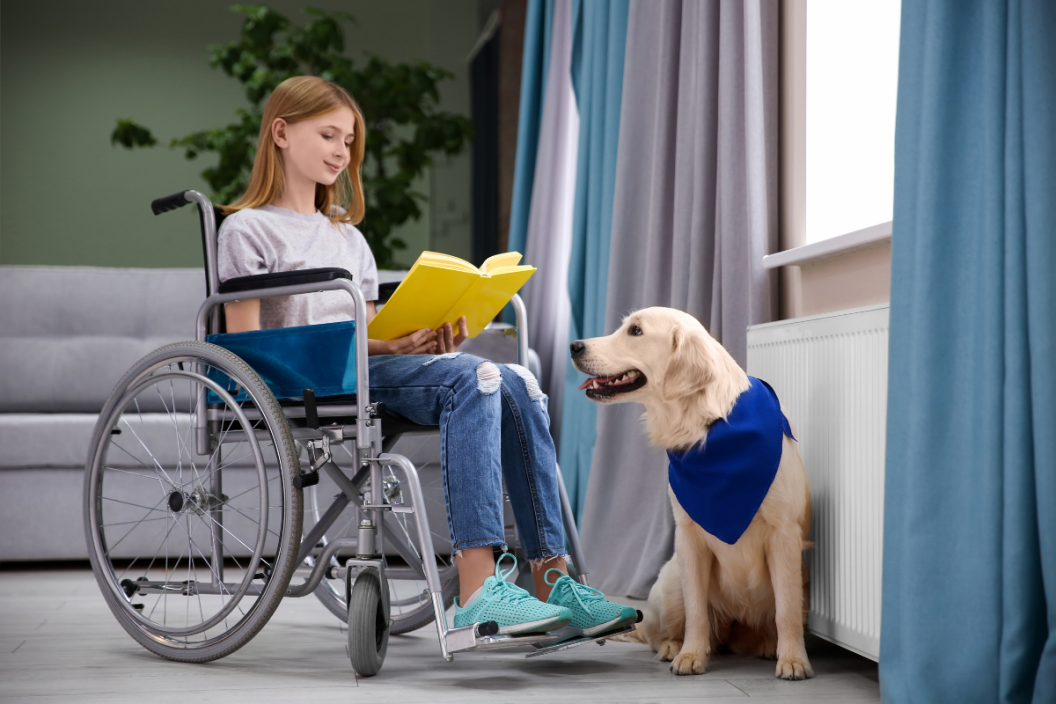It's no secret that the human-animal bond can do wonders for a person's well-being.
Pets get us through life's rough patches even if they are not therapy animals. If you've ever come home after a rough day to have your dog greet you enthusiastically, you've experienced the emotional and therapeutic benefit of your own pets firsthand. Therapy trained or not, owning and caring for pets provides a certain amount of health benefits.
The Americans with Disabilities Act has helped reshape the world's view on animal therapy, now society is catching up. Today, therapy animals serve in many different environments, and service animals offer people many benefits. Whether they're calming an anxious child or providing reassurance to complete strangers during times of stress, therapy animals are changing many people's lives.
Therapy pets are assisting healthcare professionals, by helping them bring wellness to their patients. Whether they are assisting mental health professionals with treating a variety of mental illnesses or helping with animal-assisted therapy, pet partners are an important part of therapy teams. They even brighten elderly patients at care facilities with therapeutic visitations.
How Therapy Animals Are Used
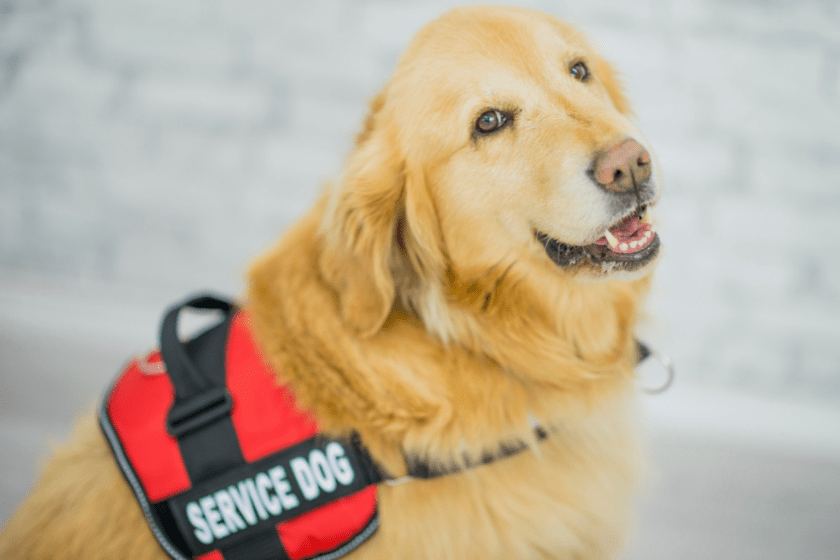
RELATED: Miniature Therapy Horses: Boosting People's Confidence & Overall Well-Being
Most therapy animals are used for similar reasons. In hospitals, they provide comfort, cheer, and companionship. Service animals take specific and necessary actions in the event of a medical emergency, or in counseling to provide comfort and relaxation. Some people get around by relying on their dogs for animal-assisted activities. These dogs are trained to open doors, turn on lights, and help their owners get through the day.
Animals therapy work can help children with learning disabilities as well as with anger management, mental health, and behavioral difficulties. There are even programs in place that use dogs to help children learn how to read. Animals are also commonly used in physical therapy to help with fine motor skills. Actions such as brushing, fastening a collar, and walking are where pet therapy can make a developmental difference.
There has also been an increase in therapy animals in courtrooms. For court cases that require a victim to testify in court and come face-to-face with their perpetrator, or discuss a difficult event, therapy animals are being used to help victims talk about their trauma and aid with post-traumatic stress disorder.
6 Types of Therapy Animals
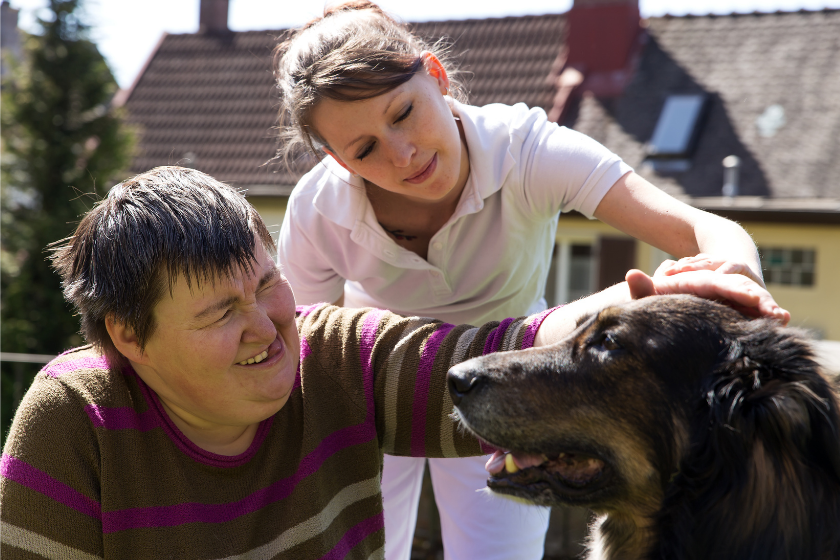
1. Dogs

Therapy dogs come in all shapes and sizes and we've all seen them at work. Whether at the mall, the grocery store, or walking down the street, therapy dogs are working hard for their owners.
While the initial reaction for most is to approach a service dog, these dogs are at work and should usually not be approached. Some wear "I'm friendly! Ask if you can pet me!" patches, in which case you can ask the handler if it's okay to interact with the working pooch.
2. Cats
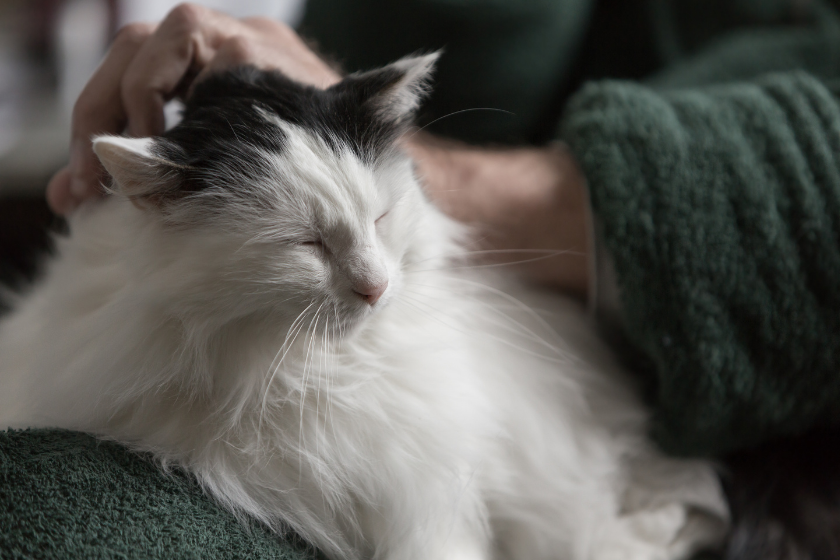
Cats have been used for therapy as well, for individuals who may be intimidated or afraid of dogs. The difficulty with cats as therapy animals is that they aren't as easily transported as dogs, and aren't usually trained as service animals as they aren't large enough to perform tasks in the event of a medical emergency.
They are common in nursing homes as they weave in and out of rooms, checking in on all the patients, pausing to snooze and snuggle. They also aid the elderly suffering from dementia.
3. Horses
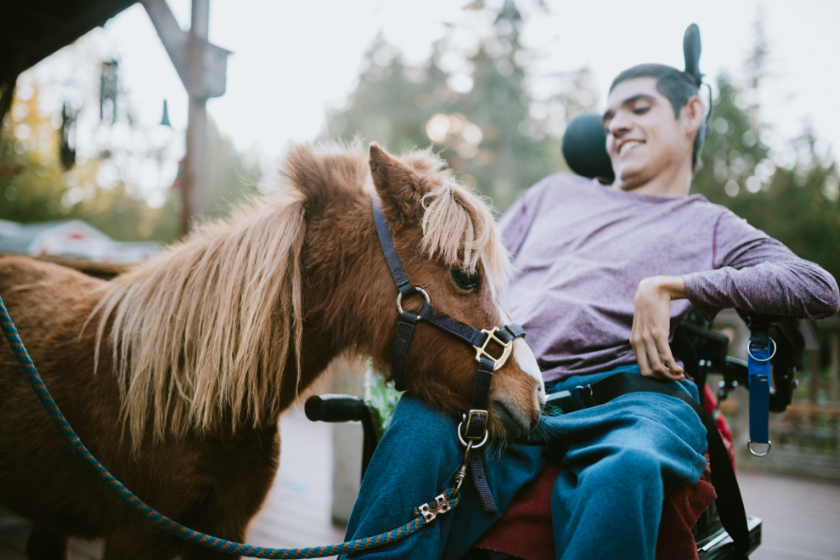
Equine therapy is popular among all kinds of individuals. Caring for a large animal requires your full attention, and offers a break from whatever destructive thoughts or behaviors are taking place (anger, abuse, learning disabilities, etc.).
Learning the skills necessary to care for a horse helps promote confidence and eases anxiety and impatience. Teaching an individual how to trust and interact with a horse has shown immense benefits for all parties involved. Equine-assisted therapy is scientifically proven to lower blood pressure and their calm nature helps enhance social skills. Therapeutic riding also aids in anger management and behavioral problems. If the rider isn't respecting the horse, then the horse won't respect the rider.
4. "Smallies"

Other small animals have been used as a more convenient form of therapy. Animals such as guinea pigs and rabbits offer the same assistance with comfort, companionship, fine motor skills, and emotional or behavioral benefits as their canine coworkers.
Smaller pets have the benefit of being easy to contain and care for, especially for those individuals who may not be able to care for a dog or cat.
5. Reptiles

While new to the therapy animal occupation, reptiles have been used in London to help individuals struggling with depression, eating disorders, and substance abuse.
Caring for a reptile takes a great deal of concentration and offers individuals a reprieve from their emotional, mental, or physical struggles. Caring for reptiles also gives individuals a surge of confidence and an uncommon area in which they can succeed.
6. Birds

Parrots specifically have been known to have a high level of empathy, making them great candidates for emotional support animals. Parrots can be taught words and phrases, which can help individuals and their animals work together during certain psychological episodes.
There have also been cases of veterans suffering from PTSDwho worked with abused birds in a sanctuary to help ease their symptoms and provide care for birds that were in need.
Anyone who has owned any type of animal has seen firsthand the compassion and benefits animals provide. Whether certified, trained for therapy sessions, or simply a companion, the benefits of an animal in any capacity is undeniable.
The question, "Who saved who?" rings particularly true to those of us in need of therapy, regardless of the capacity. Animals have a way of providing us with the care we need, with devout loyalty, unencumbered by human judgment.
If you have any experience working with therapy or service animals, please share your experiences on the Wide Open Pets Facebook page!
This article was originally published on September 15, 2019.
